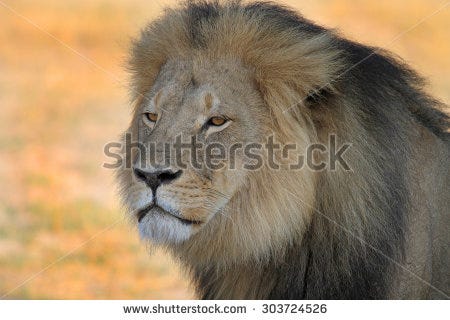
An Open Letter to the Hunting Community
After weeks of media focus, the international outrage at the
killing of the African lion known as Cecil has just barely begun to die down. All
the usual suspects have had their day, from the outraged to the outrageous. My
problem with how this all played out lies with the fact that the hunting
community's response so far has been either meek disapproval of the alleged
illegalities, or obnoxious. Is the braying of a washed-up rock star really the
best we can do? The animal (Cecil) wasn't "just a lion," (as tweeted
by said rock star). It was a living, breathing creature created for a purpose,
whether or not the international community knew of its existence. The manner in
which it died was repulsive, in or out of the limelight.
Phew. I guess you can
color me outraged.
If that were the only hunting-related scandal of recent
months, I'd do what I normally do, which is take a deep breath, try to ignore
the media circus, and chalk it up as a flash-in-the-pan issue, quickly
forgotten. Except…the situation culminating
with Cecil has been part of a long build-up of stories about questionable
hunting practices in Africa over the last few months.
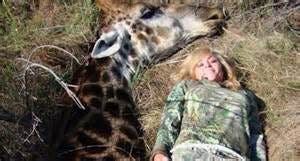 The first that came to my attention was about a picture; an
attractive, smiling young lady, lying on the ground next to a giraffe she had
killed. After the social media world exploded,
Ms. Rebecca Francis attempted to defend herself by stating that she was out
with a hunting party, and came across an older bull who had been "kicked
out of the herd" and "was near death" anyway. She claimed that
there were people waiting for the meat and that she "honored" its
life by giving it a merciful death. I'm sure I don't understand fully, not
having been there, but…What did she get out of it? If you came to my home and I
offered to let you kill an animal from my herd, even an exotic one, for whatever
reason, would you do it? Why? Would killing it be such a privilege? A pleasure?
And why the gruesome selfie? Her explanation did nothing to restore her
tarnished image as someone glorifying in what was ultimately a sad death.
The first that came to my attention was about a picture; an
attractive, smiling young lady, lying on the ground next to a giraffe she had
killed. After the social media world exploded,
Ms. Rebecca Francis attempted to defend herself by stating that she was out
with a hunting party, and came across an older bull who had been "kicked
out of the herd" and "was near death" anyway. She claimed that
there were people waiting for the meat and that she "honored" its
life by giving it a merciful death. I'm sure I don't understand fully, not
having been there, but…What did she get out of it? If you came to my home and I
offered to let you kill an animal from my herd, even an exotic one, for whatever
reason, would you do it? Why? Would killing it be such a privilege? A pleasure?
And why the gruesome selfie? Her explanation did nothing to restore her
tarnished image as someone glorifying in what was ultimately a sad death.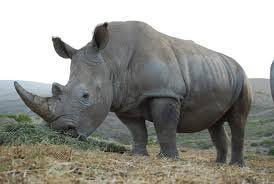 The second story I read was about Corey Knowlton, who was awarded
a permit to shoot a critically endangered black rhino, for which he paid
$350,000. The money reportedly went to support conservation efforts for the
species. He was instructed (and apparently complied, on CNN video no less) to
take only an older, non-breeding male, so as to have minimal negative impact on
the herd and remove competition that would allow younger breeding males to
introduce their genetics. While some insane people were making death threats,
the more reasonable among us were asking why he didn't just give the money to support preservation
efforts, or why he didn't find some other way to bring attention to the rhino's
plight with his apparently large supply of disposable assets. In an interview that
I discovered on-line he complained about being criticized "because I like
to hunt." Why not hunt something else? Why an endangered animal that he
personally does not need for his own survival? Why do it in the face of massive
protest by people who had legitimate concerns about whether it was even
necessary? What was all the grandstanding about? In a story about the hunt on
Radio Lab, Mr. Knowlton made a strong impression on me with his perspective
that without trophy hunting, and hunting in general, the huge "bio-mass of
humanity" would inevitably lead to the extinction of the species he
admires. That without "creating value" through putting a price on the
animal's death, the rhinos are doomed. He claimed that he lived in "the
real world" and that others were simply dreamers. I liked the guy, and
admired his passion and courage. He was
emotional, intelligent, and thoughtful, even if I didn't agree with the premise
behind his logic. His logic implies that humanity is hopelessly soulless,
self-centered and narrow, incapable of making way for other living things in
the world. The problem is that to every soulful, generous and hopeful
individual observing, he himself ended up resembling his own cynical view of
humanity. I'm sorry, Mr. Knowlton. You're a good man. I wish there were a
gentler way to disagree with you.
The second story I read was about Corey Knowlton, who was awarded
a permit to shoot a critically endangered black rhino, for which he paid
$350,000. The money reportedly went to support conservation efforts for the
species. He was instructed (and apparently complied, on CNN video no less) to
take only an older, non-breeding male, so as to have minimal negative impact on
the herd and remove competition that would allow younger breeding males to
introduce their genetics. While some insane people were making death threats,
the more reasonable among us were asking why he didn't just give the money to support preservation
efforts, or why he didn't find some other way to bring attention to the rhino's
plight with his apparently large supply of disposable assets. In an interview that
I discovered on-line he complained about being criticized "because I like
to hunt." Why not hunt something else? Why an endangered animal that he
personally does not need for his own survival? Why do it in the face of massive
protest by people who had legitimate concerns about whether it was even
necessary? What was all the grandstanding about? In a story about the hunt on
Radio Lab, Mr. Knowlton made a strong impression on me with his perspective
that without trophy hunting, and hunting in general, the huge "bio-mass of
humanity" would inevitably lead to the extinction of the species he
admires. That without "creating value" through putting a price on the
animal's death, the rhinos are doomed. He claimed that he lived in "the
real world" and that others were simply dreamers. I liked the guy, and
admired his passion and courage. He was
emotional, intelligent, and thoughtful, even if I didn't agree with the premise
behind his logic. His logic implies that humanity is hopelessly soulless,
self-centered and narrow, incapable of making way for other living things in
the world. The problem is that to every soulful, generous and hopeful
individual observing, he himself ended up resembling his own cynical view of
humanity. I'm sorry, Mr. Knowlton. You're a good man. I wish there were a
gentler way to disagree with you.
Cap this media blitz with the story of Cecil and Dr. Palmer,
and those who dislike hunting in general are having the kind of year in the
spotlight that they could have only dreamed about. Handed to them by the
hunters themselves.
But is it moral? This question needs to be answered by the
hunters, as well as everyone else.
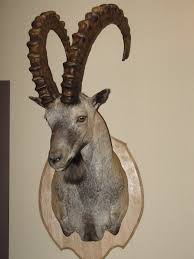 Morality-driven decisions help us to
transition from childish self-indulgence to the consideration of how our
choices impact others. They are the foundation of family, society, and
sanity.
Morality-driven decisions help us to
transition from childish self-indulgence to the consideration of how our
choices impact others. They are the foundation of family, society, and
sanity.
Would a brain surgeon sell tickets to the morbidly
fascinated who want to witness a gory spectacle? Moreover, would they allow a member of the
audience to come down and make the incision themselves? Of course not. It
wouldn't matter how much money was generated to support the hospital. It would be beneath the dignity of the profession
to allow such behavior, and it would rob the dignity of the poor person on the
table. Yet this type of logic is routinely used to justify the hunting behaviors
described above. It is not enough, but for some reason it is tolerated. Whether
considered excess or a hazard, the animals in question didn't suddenly give up their
right to be treated with dignity, just because someone in search of
entertainment gave up theirs. At least, this is how it appears to the
non-hunter, and appearances matter.
As usual, we hunters are our own worst enemy.

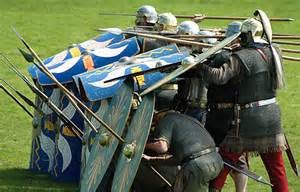 When I read the hunting magazines I get the sense that we
believe ourselves to be besieged on all sides.
The "liberal" politicians are trying to take our guns away. The
"tree huggers" are attempting to "lock up" the best hunting
grounds. The "anti's" would eliminate hunting entirely. There is some
element of truth in all this, though exaggerated for emotional effect. So far
our response has been to band together in a "united we stand, divided we
fall" posture, and focus our attention toward a perceived enemy. It's a
natural, human and instinctive reaction, and like most of our primitive
instincts, it's wildly ineffective in a civilized society. We miss the
opportunity to look at ourselves and examine how we might be contributing to
the problem. There is tremendous pressure to maintain this shield wall within
the hunting community. Often, any effort at introspection is viciously suppressed
by our peers. I have no illusions about the reception that this critique will receive
from the major hunting organizations. I fully expect that some will label me a
traitor if it sees the light of day. I guess I'm willing to pay that price. I
intend to misbehave.
When I read the hunting magazines I get the sense that we
believe ourselves to be besieged on all sides.
The "liberal" politicians are trying to take our guns away. The
"tree huggers" are attempting to "lock up" the best hunting
grounds. The "anti's" would eliminate hunting entirely. There is some
element of truth in all this, though exaggerated for emotional effect. So far
our response has been to band together in a "united we stand, divided we
fall" posture, and focus our attention toward a perceived enemy. It's a
natural, human and instinctive reaction, and like most of our primitive
instincts, it's wildly ineffective in a civilized society. We miss the
opportunity to look at ourselves and examine how we might be contributing to
the problem. There is tremendous pressure to maintain this shield wall within
the hunting community. Often, any effort at introspection is viciously suppressed
by our peers. I have no illusions about the reception that this critique will receive
from the major hunting organizations. I fully expect that some will label me a
traitor if it sees the light of day. I guess I'm willing to pay that price. I
intend to misbehave.
When learning the art of hunting, several principles were
taught to me as canon by those who gently (and sometimes not so gently) guided
me into the activity. It was made clear to me that by observing these ethics I
would avoid the sins that the young and excitable tend to commit. Armed with
the following I can look anyone in the eye and make my argument for what I do,
without shame or second-guessing myself.
 Number one among them was "Eat what you kill." I remember well the horror I felt at
the prospect of consuming the mangy little squirrel that was the first victim
of my hunting efforts, but that lesson quickly taught me to be more selective,
and careful. I enjoy a squirrel gumbo nowadays, but I have to admit, it is an
acquired taste. Through this ethic I was taught to respect the fact that another
living creature died, and I better be
willing to accept the full
consequences of my participation in that death.
Number one among them was "Eat what you kill." I remember well the horror I felt at
the prospect of consuming the mangy little squirrel that was the first victim
of my hunting efforts, but that lesson quickly taught me to be more selective,
and careful. I enjoy a squirrel gumbo nowadays, but I have to admit, it is an
acquired taste. Through this ethic I was taught to respect the fact that another
living creature died, and I better be
willing to accept the full
consequences of my participation in that death.
"Fair
chase" is a hotly debated concept within the hunting community, and
while ostensibly valued by hunters everywhere, it remains somewhat ambiguous. My definition eliminates most high-tech
gadgets, forbids the hunting of animals over bait, and limits my pursuit to
stable populations in their natural environment. No "tame" deer
walking through my back yard. No garbage-feeding bears. No exotic, imported
animals behind high fences. This ethic combines respect for the animal with an
awareness that technologically, humanity has reached the point that we are
quite capable of simply wiping out entire species (including ourselves!) It has
become too easy to kill. Voluntary self-restraint is appropriate.
"Waste
nothing" is a value that I still aspire to. I'm getting pretty close. At
its most basic level it means that anything edible, (at least by first world
standards), should be carried home and not left to rot. The purists among us would
say any usable item, including guts,
bones, and sinew. I have yet to make a water bag out of a stomach, or summon
the courage to eat brains. One of these days… Last I checked, most fish and
game departments consider wasting an animal, or large parts of it, to be a
crime. Following this ethic, even when
my stomach roils, keeps me humble.
"Take only what
you need." Within legal limits, this ethic applies regardless of what
is allowed under the law. Often it means being content to stop hunting when the
law would allow you to continue. Following this ethic keeps me safe from the
sins of greed and gluttony.
"Give back"
- We are stewards. In combination with taking only what is needed, following this
ethic helps to prevent the excesses of the past that led to the extinction of
the passenger pigeon, and the near extinction of the bison. It ensures that animal
populations remain healthy, and implies that when they are not, we have an
obligation to take action. This could be laboring to clean up habitat, contributing
financially to a conservation group, or speaking out in defense of the wildlife.
All wildlife, whether
"game" animals or not. Certainly it means not hunting a pressured species
until populations return to a sustainable level. True generosity of spirit is
best demonstrated when we give without getting anything in return. The rest of
the world knows this, which is why killing in the name of conservation is
ultimately perceived as disingenuous.
Obviously, when it comes to hunting in general, I tend to be
sympathetic. I don't see a problem with keeping a memorable set of antlers,
whether to display on the wall, to inspire conversation around the fireplace,
or to use in creating tools, furniture, jewelry, etc. As long as the death of the animal served a higher purpose. (Like
feeding a family). Yes, there is personal satisfaction, ego-gratification, even
"fun," achieved along the way. For myself, participating in the cycle
of life and death in Nature is a spiritually rejuvenating act that connects me
to God's original Creation in ways that even church cannot. But without the universally
understandable final objective of feeding family and friends, justification for
killing one of God's creatures begins to crumble.
I have to admit, considering recent media coverage, even from
the perspective of another hunter it is not clear that the typical African Big
Game Trophy Hunter is anything other than what the "anti's" paint
them out to be: wasteful, entitled, ego-driven status-seekers who treat the
animals they hunt as collectible toys for their personal amusement. Like most
stereotypes, it is unfair to many who don't fit the more negative connotations
(Mr. Knowlton is an example). Currently though, no one appears to be making
much of an effort to improve on that image.
Unless that changes, it makes the rest of the hunting community look
bad, and harms our cause. Please speak out if you are the exception. That is a
dialogue we need to have.
Dr. Palmer's execution of Cecil was a huge black eye on the
face of hunting in general, but the practice of African trophy and safari
hunting wasn't all that pretty to begin with. We must accept responsibility for
our part in this. Maybe this is an opportunity to clean house.
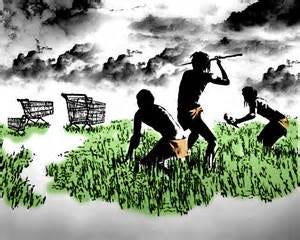



No comments:
Post a Comment
I just today (after many months of the Blog being up) figured out how to allow comments on the things I post. That has always been my intention, but apparently I didn't know how. I will moderate the comments, but I welcome disagreement as long as it is civil. Strong language in the heat of passion is okay, abuse and personal attacks are not. Enjoy yourselves!